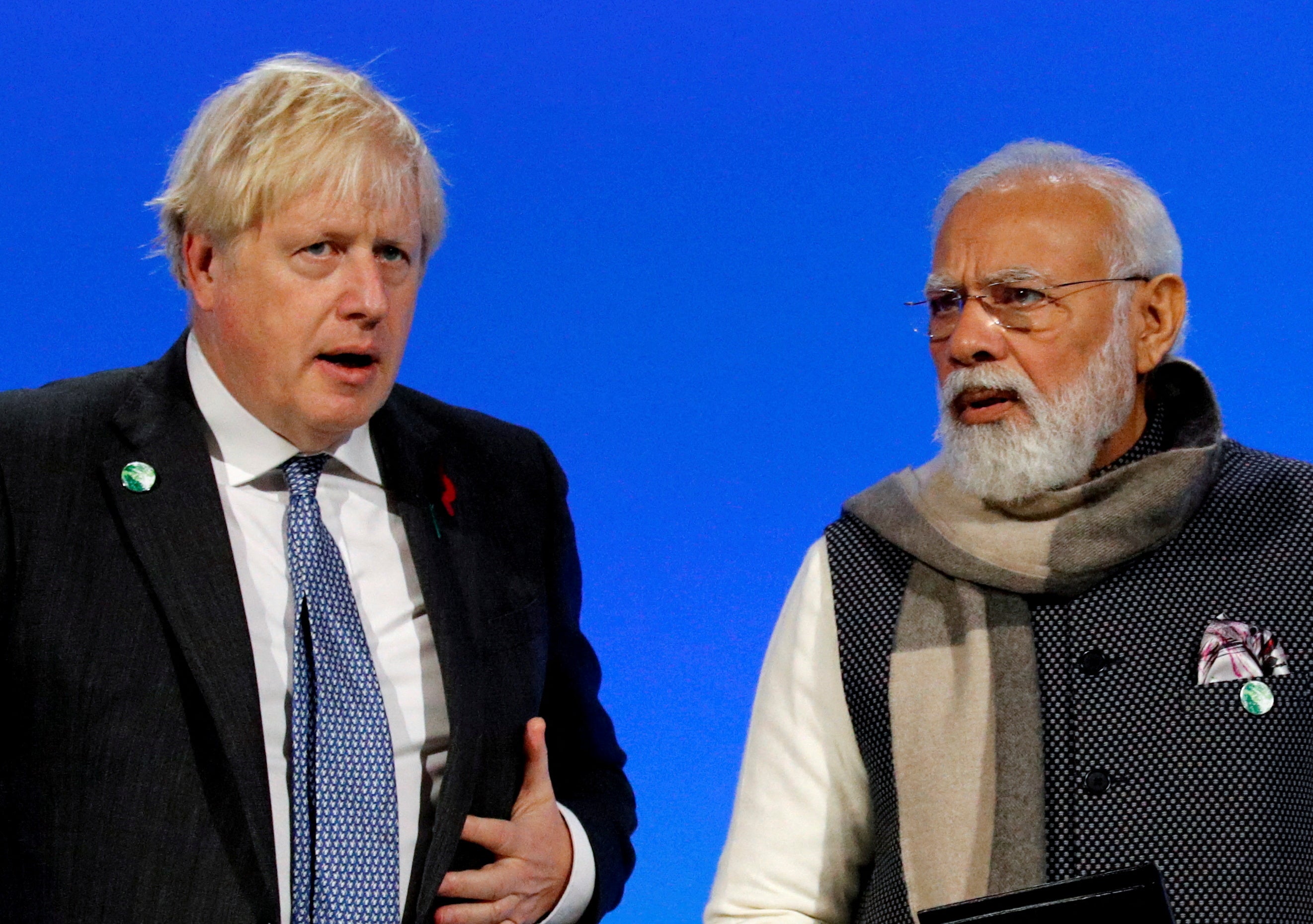The Independent's journalism is supported by our readers. When you purchase through links on our site, we may earn commission.
Boris Johnson’s trip to India won’t work – Modi and Putin are closer than the west realises
Narendra Modi is far more ideologically, culturally and militarily aligned with Putin than is commonly assumed in Europe


Boris Johnson has gone to India today to persuade its leader to join the western alliance against Putin. I guess it allows him to escape inconvenient headlines at home. But the trip to India is unlikely to yield much. For both leaders it is a photo opportunity for a pretence.
India’s prime minister, Narendra Modi, is far more ideologically, culturally and militarily aligned with Putin than is commonly assumed in Europe. India isn’t walking a fine line, but rather trying to give western leaders that impression, in order to preserve its close alliance with Putin. In fact, it was among the first countries to start flouting western sanctions by doubling down on buying Russian oil, even as China held off.
Let’s take the military point first, since that’s what most people focus on. It is true that for decades, India was the single largest importer of Russian military equipment. Nearly $36bn (£27bn) out of the total $54bn it spent on arms imports over the last 20 years went to Russia. Only around $4bn was spent on military equipment from the US and, and a similar amount from Israel. As much as 85 per cent of India’s key weapons systems are of Russian origin, according to one estimate. All this makes India reliant on Putin for spare parts, maintenance and upgrades.
But this is only one side of the picture. The country had long sought to buy more sophisticated and advanced American defence technology, but was hampered by sanctions imposed by the Clinton administration in 1998, after it tested multiple nuclear weapons. In other words, it had no choice but to buy Russian military technology.
There’s another key reason India needs western support. China’s leader Xi Jinping has taken a far more confrontational approach with India over border disputes than his predecessor, humiliating Modi multiple times. That makes the country ideal for a partnership with the US, Britain, Japan and Australia – who want allies to help contain China. Staying in an alliance with Putin makes both countries even more dependent on the mercy of their bigger partner, China.
In other words, the military case for India sticking with Russia isn’t as clear cut as some western and Indian commentators claim. Modi’s alliance with Putin is deeper than simply a marriage of convenience. It is an ideological and cultural marriage too. And both countries take that more seriously than western commentators realise.
It’s worth remembering that before he became prime minister, Modi was banned from entering the UK and the US. In 2002, he was widely blamed for sitting by and doing little as Hindu extremists carried out anti-Muslim pogroms in the state of Gujarat – where he was the leader. He was banned for good reason. The US and UK at the time were hoping he would not come to power. Modi has not forgotten that slight.
Modi’s party, the BJP, wants to create a state where Hindus are put first. Not a multicultural and multifaith democracy, but an authoritarian state where one group has implicit and explicit power over everyone else. Christian, Muslim and Sikh groups have been sounding the alarm ever since he came to power. Christians and Muslims in India in particular have faced a rising number of attacks in recent years over the practice of their faith. As I wrote in my report for the Home Office in 2019, the rise of Hindu nationalism has stirred up interfaith tensions as far as Britain and the United States too.
To keep up to speed with all the latest opinions and comment, sign up to our free weekly Voices Dispatches newsletter by clicking here
Modi and Putin share a worldview that goes deeper than military ties. They both want to create a nation that eschews diversity and democracy for an authoritarian ethno-state. They want to put their own people (white Russians, upper-caste Hindus) first. And they resent the US and the UK for raising human rights abuses at home.
The Hindu nationalist right is much closer to Putin and Xi Jinping’s worldview than that of the Democrats in the US. While Modi was happy to go and campaign for and with Donald Trump, he hasn’t had the same relationship with Biden, for the same reasons.
If it strikes you as odd that the far right would make alliances with brown people, it shouldn’t. Hindu extremists have long admired Hitler, and more recently there was plenty of love for Trump among the same crowd for similar reasons. Modi and Putin both believe that countries should be allowed to run their own affairs how they want, including the persecution and subjugation of minorities if needed.
If the west wants to choke Putin’s war machine, they will need to do far more than just plead for Indian support. They will need to threaten Modi with sanctions and show some resolve. It’s the only language that both Putin and Modi understand.
Join our commenting forum
Join thought-provoking conversations, follow other Independent readers and see their replies
Comments
Bookmark popover
Removed from bookmarks